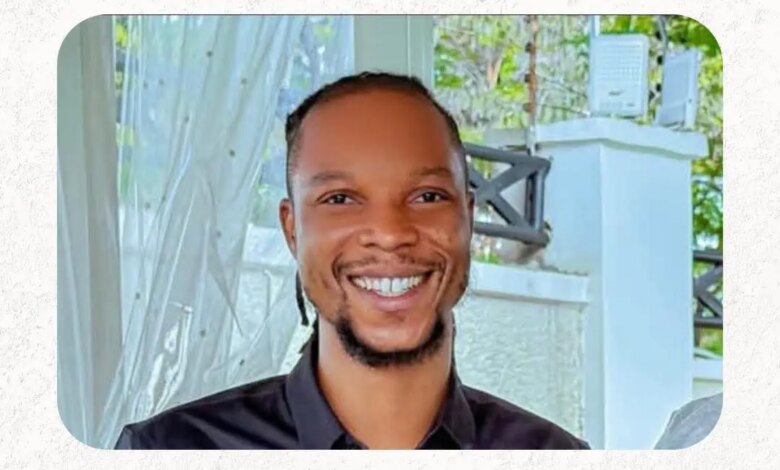Rights groups slam police over detention of Fejiro Oliver, issue 7-hour ultimatum for his release

Human rights advocates in Delta State have issued a 7-hour ultimatum to the police, demanding the immediate release of journalist Fejiro Oliver, who has been in detention since his arrest in Abuja on September 19, 2025.
Oliver, who was arrested in Abuja and flown to Asaba by operatives of the Force Intelligence Department (FID), is being held over allegations of cybercrime.
They gave three conditions which must be met before the 7 hours elapsed: release him unconditionally, release him immediately, or arraign him in court to face whatever charges the police claim to have against him.
The trio — Barr. Omes Ogedegbe, Director, General Confab for the Actualisation of Human Rights; Comrade Dr. Akima Umukoro, President, UPU Youth Wing Worldwide; and Comr. Daniel Etaga, former President, Niger Delta Youth Council (NDYC) — during a press briefing in Asaba on Wednesday, threatened that “failure to act will force them to pursue other legal and civil avenues to secure his freedom.”
They asserted that his continued incarceration is not only unlawful but a clear indication that the police are now being used to carry out personal vendettas on behalf of powerful individuals.
They expressed concern over the disturbing pattern of multiple petitions being filed against Fejiro Oliver, which they believe are part of a coordinated attempt to silence his activism and journalism.
What is most troubling, according to them, is that the police officers assigned to investigate these petitions now appear to be acting as complainants themselves.
“Rather than acting as neutral investigators, the police are reportedly confronting Fejiro with his old Facebook posts — posts that are not even tied to any formal petition. This reveals a troubling trend. Police officers, instead of investigating actual complaints, are allegedly fishing for reasons to justify his arrest after the fact.”
According to Barr. Ogedegbe, this conduct by the police grossly violates legal and constitutional provisions.
“Law enforcement agencies are expected to act as impartial umpires in any investigation. But in this case, the police seem to have abandoned due process and are taking sides, transforming themselves into instruments of personal revenge.
“Fejiro Oliver, however, remains in high spirits despite these attempts to break his resolve. His supporters believe his strength stems from the knowledge that the law is on his side, and public opinion is gradually turning against the oppressive tactics being used by the police.
“One of the most shocking aspects of this case is the apparent intention to place Fejiro incommunicado following his arrest. It was only due to intense public outcry that he was allowed limited communication with a few chosen individuals.”
They lamented that there seems to be no plan to bring him before a court, raising serious questions about what the police are hiding and who they are protecting.
“This has prompted a powerful question from his defenders: Who is afraid of Fejiro Oliver? Why is the state machinery being used to isolate and silence a journalist instead of investigating any claims in accordance with legal procedures? If there were genuine allegations, why was he not arrested only after a thorough investigation?
“As it stands, the constitutional window of 24 to 48 hours for arraignment has long expired. The court is within walking distance of the police headquarters, making any delay inexcusable. The police cannot claim logistical challenges for failing to arraign him or grant him bail.”
Meanwhile, Comrade Akima described Fejiro as a journalist who prides himself as a “secret reporter,” which could be termed investigative journalism, “in the course of which he spoke truth to power and some persons were offended by the level of information he was bringing to the public domain.
“Of course, to allege that their reputation was defamed by him, and this is what they tend to have categorized as internet bullying or internet stalking. What we have seen today is a manifestation of allegations that have been coming in trickles.
“Several persons have been bringing in petitions, and this is now opening up a window for even the police to be doctoring petitions because from what we discovered today, policemen who ought to be in charge of the matter, to investigate the complaints as revealed by their actual complainants, now seem to be complainants themselves.
“Fejiro Oliver was confronted with several of his posts he made online on Facebook, and none of these allegations are tied to any petitions. Which is to say, to me, that the police will just go to his Facebook page, extract information, and confront him with the same information extracted from his page, where there is no pending petition in that regard. So we are beginning to see that if the police, ordinarily by law, want to be an umpire, the police should be seen to be investigating the allegations brought to them by the complainants, despite being flooded with a series of petitions. But we are not perturbed.”
Etaga, however, said Fejiro has remained behind bars in Delta State, sparking outrage over what critics describe as a gross abuse of power by state actors and the Nigerian police.
“Despite calls from civil society groups and press freedom advocates for his immediate release, Oliver continues to languish in detention.
“The development has raised fundamental questions about free speech, abuse of executive influence over law enforcement, and the shrinking civic space in Nigeria.
“Oliver’s continued detention further exposes a dangerous trend in Delta State: the weaponisation of the police against dissenting voices. If left unchecked, such authoritarian impulses will deepen the culture of fear, silence journalists, and erode democracy.
“This is no longer about Fejiro Oliver; it is about whether ordinary Nigerians still have the right to speak truth to power without being locked up. Firstly, it was upon our outcry that Fejiro was allowed to breathe a little air,” Etaga warned.





